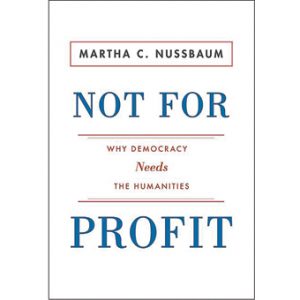 In an age of globalization, governments and corporations expect colleges and universities to train students for employment. But University of Chicago professor Martha Nussbaum believes students need more than a solid technical education, for colleges and universities are also in the business of forming global citizens who can participate in and strengthen democratic societies.
In an age of globalization, governments and corporations expect colleges and universities to train students for employment. But University of Chicago professor Martha Nussbaum believes students need more than a solid technical education, for colleges and universities are also in the business of forming global citizens who can participate in and strengthen democratic societies.
According to Nussbaum, the technical education provided in many European and Asian universities may prepare workers for the global information marketplace, but their focus on factual data and technical skills, often through rote memorization and passive learning, does not prepare students to negotiate the challenges of preserving democracies in a pluralistic world.
The work of active citizenship requires a set of humanizing skills better learned in the give and take of active dialogue about the serious questions of life, death, meaning, vocation, love, and community. As Nussbaum sees it, these are skills our students are more likely to learn in their humanities classes, where personal and communal reflection on life’s bigger questions is the daily routine.
Forming global citizens capable of thoughtful, creative, and peaceful interaction with people from widely different communities requires that students learn to question authority, think critically, and imagine themselves in others’ shoes. As Nussbaum sees it, the humanities, with their focus on Socratic learning, open dialogue, and imaginative and creative play, encourages and fosters the development of a critical intelligence that will not be cowed and a sympathetic compassion that can bridge political, economic, and religious divides.
By learning to wrestle with and reflect upon life’s bigger and messier questions, students in the humanities are developing the ability to work and play well with people and communities of every stripe and build a world that works better for all.
This article appeared in the October 2010 issue of U.S. Catholic (Vol. 75, No. 10, page 42).














Add comment